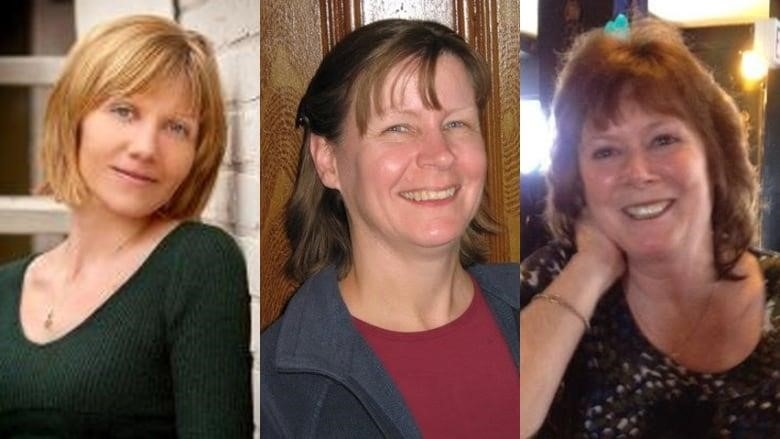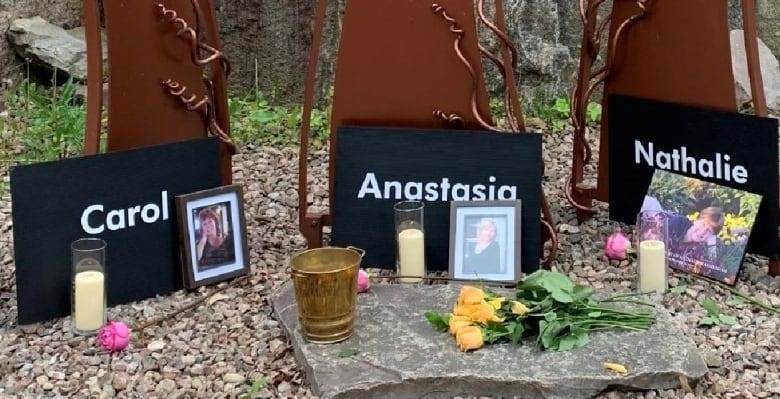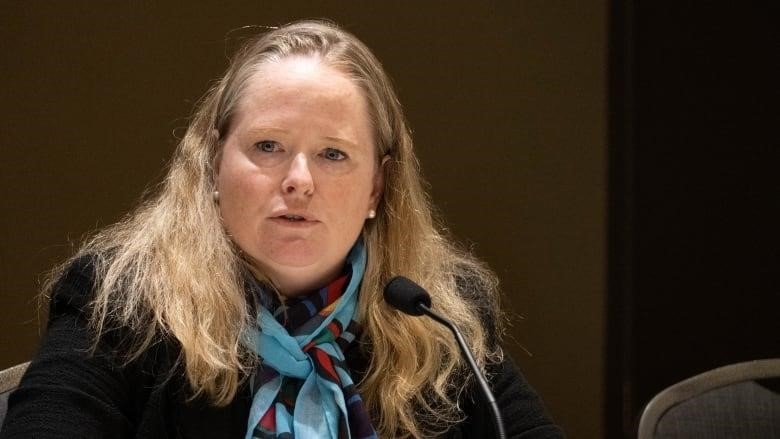29 of the 75 suggestions made by the coroner’s inquest to Ontario still need to be taken care of
The Ontario government says it needs more time to think about many of the ideas a coroner’s inquest jury came up with to prevent deaths caused by intimate partner violence (IPV), while advocates say they’re disappointed with what they’ve heard from the province so far about some of the jury’s other suggestions.
End Violence Against Renfrew County said in a news release on Thursday, “We had hoped the government would honor Carol, Anastasia, and Nathalie and the inquest process by moving quickly to implement key recommendations, like calling intimate partner violence an epidemic.”
Last summer, in Pembroke, Ontario, a nearly month-long inquest looked into the deaths of Carol Culleton, Anastasia Kuzyk, and Nathalie Warmerdam, all of whom were killed in 2015 in and around Renfrew County. Even though there were warning signs that he might hurt more people, the same man killed all three women on the same day.
Over the course of 14 days of testimony, jurors heard about everything from underfunded survivor services to missed chances by Ontario’s probation and parole service after the man had been convicted of IPV in the past for two of the women he later killed.
In response, the jurors suggested that the provincial and federal governments take a long list of measures to stop it from happening again.
But the Ontario government’s first response to these recommendations, which was filed last week, doesn’t address 29 of the 75 recommendations made to the province, including:
- IPV will be officially called a provincial epidemic.
- a plan for housing victims of IPV who are running away from their abusers.
- funding for safe rooms inside survivors’ homes.
- a hotline that is open 24/7 for men who might commit IPV.
- Consider letting police services tell new or potential partners about a person’s history of intimate partner violence, like Saskatchewan, Alberta, and Manitoba have done.
- keeping a record of IPV abuses and charges in the past that all police services can access.
- The practice of “mandatory charging,” in which police have to charge someone with assault if they think they have a good reason to do so, is being looked at.
- Judges’ decisions in IPV cases are being looked at.
The lawyer who represented the Renfrew County group during the inquest, Kirsten Mercer, said that the group is “disappointed at the number of items that haven’t had any response at all yet.” “It’s not like these suggestions have never been heard before.”
Watch: A lawyer says that the phrase “where possible” could mean more than one thing.
Mercer said that so far, the province’s response hasn’t done enough to help IPV offenders while they are in the criminal justice system or even before.
During the inquest, “there was a lot of evidence showing that Ontario is far from where it needs to be,” she said, citing a treatment program for IVP offenders on probation as an example. This program has been criticized by many people.
Mercer said that the lack of a response to Recommendation No. 5 from the inquest, which asked the province to start a committee right away to put pressure on the government to act on the recommendations, was especially shocking.
“That’s the first job that comes to mind, and it’s on the TBD list.” “That just seems like a big miss to me,” she told me.

Province says issues are comple
In its response last week, the province said that the list of 29 unaddressed recommendations needs more research and teamwork. It also said that it plans to address those recommendations in a second response by the end of June.
When asked about EVA Renfrew County’s criticism of its first response, a spokesperson for Ontario’s Ministry of the Solicitor General said in an email that the work needed to understand, evaluate, and plan for the recommendations is complicated and must be done with care.
“Ontario is committed to ending intimate partner violence and helping people who have been hurt by their partners. This will help keep communities safe. “We hope that all of the recommendations will have been looked at by the end of the summer,” the person in charge said.
EVA Renfrew County said that some of the province’s promises gave them hope. For example, the province said it would look into ways to make it easier for groups that help women escape abuse to meet reporting requirements. At the inquest, it was said that heavy paperwork keeps workers from doing their front-line jobs.
But EVA “had hoped for more” from the province’s answer as a whole, the group said in a news release.

Mercer said that one of the responses to some of the most shocking testimony at the inquest, in which a representative from Ontario’s probation and parole service talked about “missed” chances to keep a closer eye on the killer who killed Culleton, Kuzyk, and Warmerdam, also includes a troubling qualifier.
The Ministry of the Solicitor General said in a letter that policies have been put in place to make sure that, when an IPV offender is on probation, officers keep in touch with past IPV victims “where possible.”
The Renfrew County murderer had less and less contact with his victims in the months before he killed three people.
“I’m not saying an officer should chase after a survivor who doesn’t want to talk.” But in that sentence, “where possible” does a lot of work, Merrir said.
“There are not enough people doing this work, so “where possible” may mean “I don’t have time to keep following up with someone who doesn’t call me back” or “I don’t have enough people on the ground to contact not only this survivor but also the three people I know this perpetrator is currently in a relationship with.”

The idea of police stations in schools was thrown out
So far, Ontario has only turned down one suggestion, which was to include IPV in every municipality’s plan for community safety and well-being.
Even though the Ministry of the Solicitor General liked the idea behind the recommendation, it said that these kinds of projects should be led by local governments.
One part of the recommendation, which asked schools to think about giving office space, was accepted, but another part, which asked police to set up satellite offices to spread resources more evenly over large rural areas, was not.
“Schools aren’t good places for host or satellite detachments because people can get in and out of them,” the ministry wrote.
Dozens of other recommendations that have been looked at so far have been accepted either in full or in part. The province says it started doing these things both before and after the jury made its decisions.
Since the inquest ended last summer, police have charged two men with second-degree murder in the deaths of Sommer Boudreau and Lisa Sharpe in Renfrew County.
On Friday, the Ontario NDP will hold a virtual news conference to ask Premier Doug Ford to pass all the recommendations that are up to his government.
Read below for the Ontario government’s first response to the jury’s suggestions from the coroner’s inquest.
Mobile users: Look at the file (PDF KB) (Text KB)CBC is not responsible for 3rd party content
